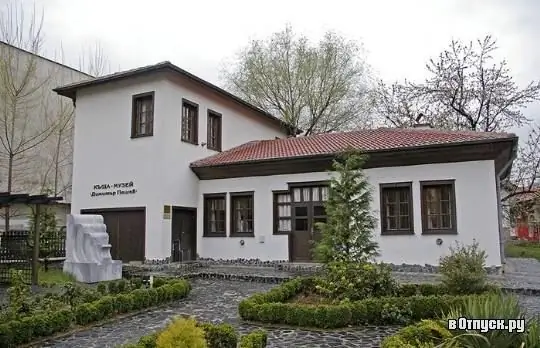
Description of the attraction
The house-museum of Dimitar Peshev in Kyustendil is an exact copy of the home of this famous politician. It houses a collection of written and material sources that are associated with a difficult period for Bulgarian Jews.
Dimitar Peshev is a Bulgarian lawyer and politician who initiated a campaign to save Jews during the German occupation of Bulgaria. It is known that in March 1943, the new government approved an agreement with Germany, according to which about 50 thousand Jews from Bulgaria were to be deported to the Third Reich. Immediately after the approval of the directive, Dimitar Peshev found out about its existence, who immediately demanded the cancellation of the deportation, but he was refused. After the refusal, he collected signatures under a collective protest - 43 out of 160 deputies supported his intention to stop the deportation of Jews from Bulgaria. The appeal was even signed by former Prime Minister Tsankov, who at that time was a consistent supporter of the Bulgarian-German Union.
Peshev defended the Bulgarian Jews as full citizens of the country, appealing to the national pride of all the deputies. After Filov, the prime minister, received the appeal, some of the deputies were pressured by the current government and, as a result, a minority refused to sign. Subsequently, Peshev was removed from his post as deputy chairman of the Bulgarian parliament.
Thanks to the actions of Dimitar, the opponents of deportation, led by the hierarch of the Bulgarian Orthodox Church, were able to mobilize. As a result of public influence, Tsar Boris III had no choice but to prohibit the deportation of Jewish citizens of Bulgaria.
The house-museum displays copies and originals of the most important documents of that time, testifying to such a serious feat of a politician who was not afraid to lose his status and place in society for the sake of helping fellow citizens.






